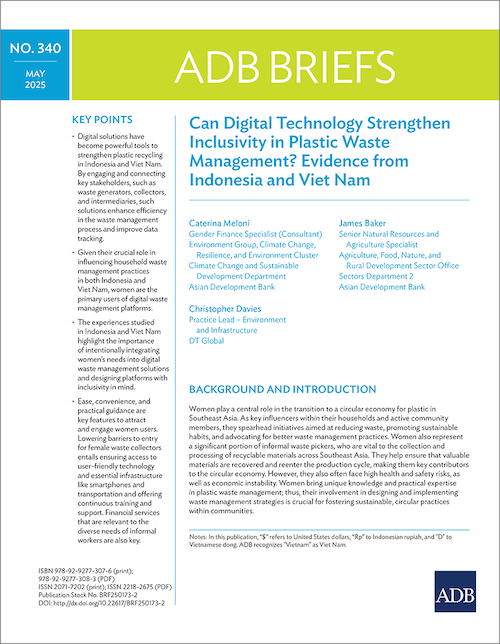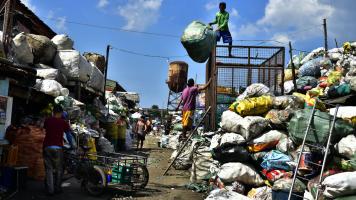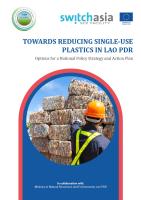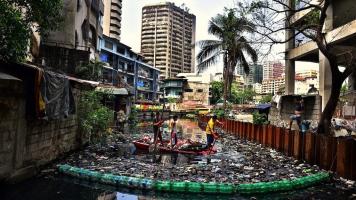Can Digital Technology Strengthen Inclusivity in Plastic Waste Management? Evidence from Indonesia and Viet Nam
 Download (153.15 KB)
Download (153.15 KB)
Publication Type:
Publisher:
Asian Development Bank (ADB)
Publication:
May 2025
This brief shows how Indonesia and Viet Nam can increase the use of digital solutions to help women boost plastic waste management and accelerate the push toward a circular economy.
Women play a central role in the transition to a circular economy for plastic in Southeast Asia. As key influencers within their households and active community members, they spearhead initiatives aimed at reducing waste, promoting sustainable habits, and advocating for better waste management practices. Women also represent a significant portion of informal waste pickers, who are vital to the collection and processing of recyclable materials across Southeast Asia. They help ensure that valuable materials are recovered and reenter the production cycle, making them key contributors to the circular economy. However, they also often face high health and safety risks, as well as economic instability. Women bring unique knowledge and practical expertise in plastic waste management; thus, their involvement in designing and implementing waste management strategies is crucial for fostering sustainable, circular practices within communities.
Given the important roles that women and informal waste workers play in promoting circularity, this brief focuses on their contributions and explores how digital solutions can be used to enhance women and informal workers’ efficiency, reach, and income generation in plastic waste management. The brief explains the potential of digital platforms to increase inclusivity and efficiency, if infrastructure and digital literacy barriers are tackled. Drawing on case studies, it underlines the need to put women at the center of training and solutions development, support community-based cooperative models, and enhance infrastructure to improve their outcomes.


